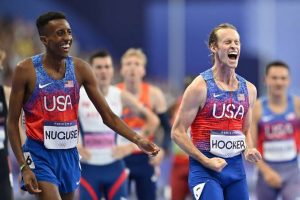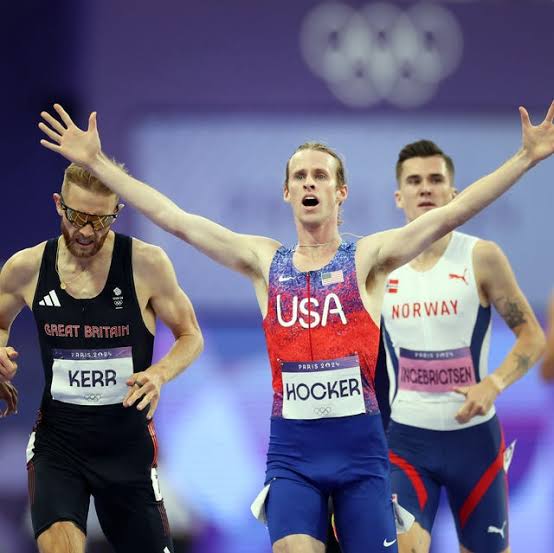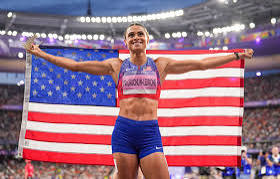1,500-meter champion Cole Hocker will make his Franklin Field debut
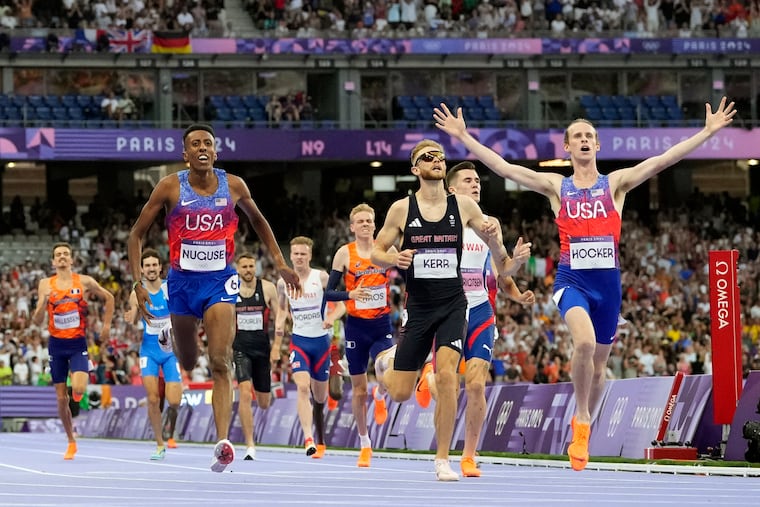 Cole Hocker (right) crossing the line in his come-from-behind win at last year’s Olympics, one of the Games’ most vivid moments. Read more Petr David Josek / AP
Cole Hocker (right) crossing the line in his come-from-behind win at last year’s Olympics, one of the Games’ most vivid moments. Read more Petr David Josek / AP
When Cole Hocker stepped to the starting line for the men‘s 1,500-meter final at last summer’s Olympics, he was well-known in the track world.
He’d won silver in the world indoor championships a few months earlier, finished sixth at the 2021 Games, and won the NCAA title at Oregon just before that.
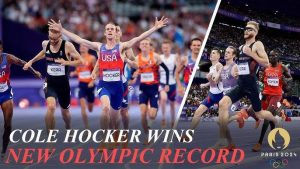
But the sorts of people who only watch track and field during the Olympics — which is to say, a lot of people — might not have heard of him yet.
Three minutes and 27.65 seconds later, that changed forever.
Hocker mounted a comeback for the ages in the final lap, overtaking Josh Kerr, Jakob Ingebrigtsen, and the trash-talking rivalry between them that had dominated the buildup.
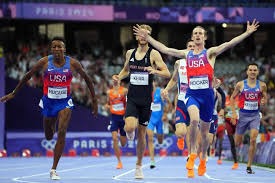
Just like that, the Indianapolis native won the gold medal and was launched on the kind of rocket ride to stardom that the Olympics do like nothing else.
“The last 200 [meters] was as close to an out-of-body experience that I’ve ever had,” Hocker told The Inquirer as he prepared to come to Philadelphia for this weekend’s Grand Slam Track meet at Franklin Field.
“Coming around the last turn, my ears hit their limit, it was so loud,” he said. “My ears were ringing within the race, and I was aware of that, which is pretty incredible to be able to understand what’s happening in such an intense moment.
